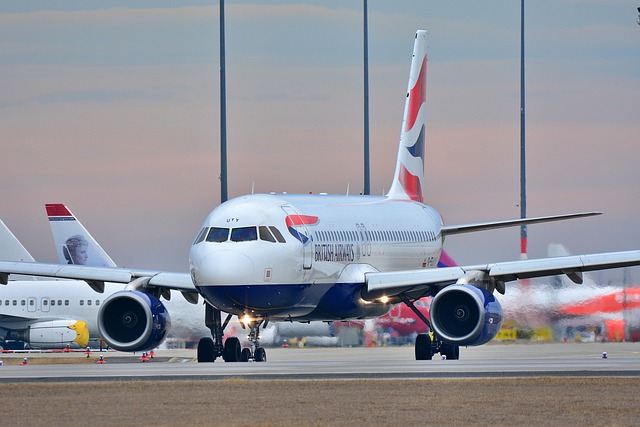English Speakers in the Netherlands Can Pursue Aviation Careers
In the Netherlands, proficiency in English may provide access to various career pathways within the aviation industry. This sector is experiencing growth, with an increasing demand for skilled professionals. Understanding the roles available and the conditions associated with them can help individuals navigate this promising field effectively.

The aviation industry in the Netherlands operates largely in English, making it accessible to international professionals and residents who may not speak Dutch fluently. With Amsterdam Airport Schiphol ranking among Europe’s busiest airports and numerous aviation-related companies based in the country, the sector continues to seek qualified individuals across multiple disciplines. Understanding the available pathways and requirements can help English speakers navigate their entry into this field effectively.
Understanding Career Pathways in Aviation for English Speakers
Aviation careers extend far beyond piloting aircraft. The industry encompasses roles in aircraft maintenance, air traffic control, ground operations, cabin crew, aviation management, safety inspection, and logistics coordination. English speakers in the Netherlands can access many of these positions, as English serves as the international language of aviation and is used extensively in operational contexts.
Training programs for aviation careers vary significantly depending on the chosen specialization. Pilot training typically requires enrollment in an approved flight school, completion of theoretical examinations, and accumulation of flight hours under supervision. Aircraft maintenance engineers must complete recognized technical training programs and obtain certifications that meet European Aviation Safety Agency standards. Cabin crew positions generally require completion of shorter training courses focused on safety procedures, customer service, and emergency response.
Many Dutch aviation training institutions offer programs conducted partially or entirely in English, recognizing the international nature of the industry. Prospective students should verify language requirements and accreditation status before enrolling in any program.
The Growing Demand for Skilled Professionals in the Aviation Sector
The aviation sector has experienced fluctuations in demand for personnel, influenced by factors such as economic conditions, technological advancements, and industry recovery patterns. However, certain roles consistently require new talent as experienced professionals retire or transition to other positions.
Aircraft maintenance technicians remain in steady demand, as the technical complexity of modern aircraft requires specialized knowledge and ongoing training. Ground operations staff, including baggage handlers, ramp agents, and operations coordinators, are regularly needed to support airport functionality. Additionally, roles in aviation logistics, cargo handling, and supply chain management have grown as air freight continues to expand.
The shift toward more sustainable aviation practices has also created demand for professionals with expertise in environmental compliance, fuel efficiency analysis, and alternative propulsion systems. English speakers with backgrounds in engineering, environmental science, or related fields may find opportunities in these emerging areas.
Key Roles and Conditions for Aspiring Aviation Professionals
Several factors influence success in pursuing an aviation career in the Netherlands. Work permits and visa requirements apply to non-EU citizens, though EU nationals enjoy freedom of movement for employment purposes. Background checks and security clearances are standard across most aviation roles due to safety and security protocols.
Physical fitness requirements vary by position. Pilots and cabin crew must meet specific medical standards, while ground operations roles may involve physical labor requiring good health and stamina. Age restrictions apply to certain positions, particularly for pilot training programs, though many roles have no upper age limits.
Networking within the industry can significantly enhance career prospects. Attending aviation job fairs, joining professional associations, and connecting with current industry professionals provide valuable insights and potential employment leads. Internships and apprenticeships, when available, offer practical experience that strengthens applications for permanent positions.
Continuing education and skill development remain important throughout aviation careers. Regulatory changes, technological updates, and evolving safety standards require professionals to engage in regular training and certification renewals.
Practical Considerations for Training and Certification
Aviation training represents a significant investment of time and resources. Prospective students should carefully research program costs, duration, and outcomes before committing. Flight training for commercial pilots, for example, typically requires one to two years of intensive study and practice, while aircraft maintenance engineering programs may span two to four years depending on the level of certification sought.
Financial planning is essential, as training costs can be substantial. Some individuals pursue aviation careers while working part-time or seek financing options through educational loans or payment plans offered by training institutions. Understanding the total cost, including tuition, examination fees, equipment, and living expenses, helps in making informed decisions.
Accreditation and recognition of qualifications are critical considerations. Training completed in the Netherlands under EASA-approved programs is generally recognized throughout Europe, facilitating mobility within the European aviation job market. However, those planning to work outside Europe should verify whether their certifications will be accepted or require conversion.
Conclusion
English speakers in the Netherlands have access to various aviation career pathways, supported by the industry’s international nature and the widespread use of English in operational settings. Success requires thorough research into training requirements, realistic assessment of costs and time commitments, and understanding of the specific demands associated with different roles. While the aviation sector presents challenges, including competitive entry requirements and the need for ongoing professional development, it also offers the potential for rewarding careers in a globally connected industry. Aspiring professionals who approach their career planning methodically and remain adaptable to industry changes can find meaningful opportunities within the Dutch aviation landscape.




